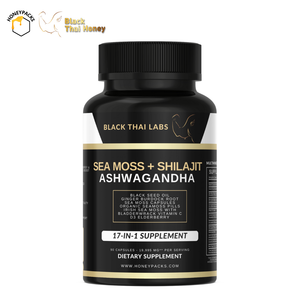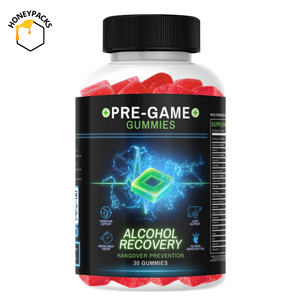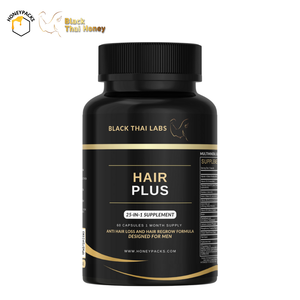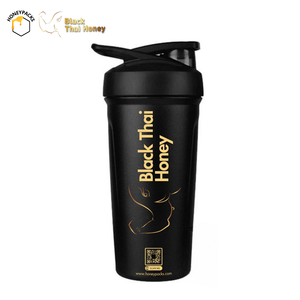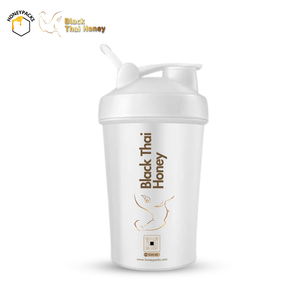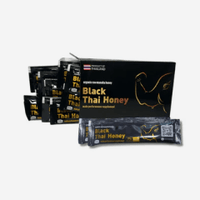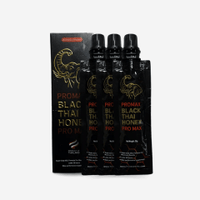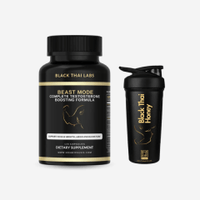Vitamin C For Testosterone: Natural Energy And Libido Boost
Vitamin C supports testosterone by lowering cortisol, enhancing nitric oxide retention, and protecting hormone-producing cells from oxidative stress. It may also improve sperm quality, libido, and energy, making it a natural option for boosting male vitality.
If you’re looking for a safe, natural way to support testosterone without turning to risky synthetic boosters or expensive prescriptions, Vitamin C deserves your attention. While best known for immunity, research and user experiences point to powerful hormonal effects, especially when combined with adaptogens like ginseng and black ginger. It supports testosterone production through multiple pathways:
-
Boosts natural energy and stamina
-
Improves blood flow via nitric oxide retention
-
Protects hormone-producing cells from oxidative damage
-
Helps lower cortisol, which can suppress testosterone
-
Enhances sperm quality, libido, and hormonal balance
Want the full breakdown of how Vitamin C supports testosterone, and how to use it for results? Let’s dive in.
What Does Vitamin C Do in the Body?
Before diving into testosterone, it helps to understand what Vitamin C actually does, and why its benefits reach far beyond just immunity.
A Powerful Antioxidant With Hormonal Impact
Vitamin C is one of the body’s most essential antioxidants. It neutralizes free radicals, reduces oxidative stress, and helps protect sensitive tissues, including the testes and adrenal glands, both critical to hormone production. When oxidative damage builds up in these areas, testosterone output can suffer. Vitamin C helps keep that system clean, stable, and firing efficiently.
Cortisol-Lowering and Adrenal Support
One of Vitamin C’s lesser-known superpowers is its ability to blunt cortisol spikes. Cortisol, your body’s stress hormone, has a well-documented inverse relationship with testosterone. When one rises, the other tends to fall. By keeping cortisol in check, Vitamin C helps preserve the hormonal balance men need to maintain strength, drive, and energy. It also fuels the adrenal glands, which play a central role in overall hormone regulation.
Supports Nitric Oxide and Circulation
Vitamin C helps regenerate and retain nitric oxide (NO), a compound that promotes blood flow and vascular health. Improved circulation benefits your heart and supports the delivery of key hormones, oxygen, and nutrients throughout the body, including those that impact sexual performance and stamina.
Collagen, Immunity, and Hormone Synthesis
Vitamin C is vital for collagen synthesis, immune defense, and neurotransmitter production, all of which influence how you feel, move, and recover. It also plays a cofactor role in several enzymatic steps tied to hormone biosynthesis, including the production of testosterone from cholesterol.
So, is Vitamin C only an immune booster?
No. While it certainly supports immunity, its reach extends into energy, performance, recovery, stress regulation, and yes, your hormonal health. That’s why it’s gaining traction as a foundational piece of the testosterone optimization puzzle.

The Link Between Vitamin C and Testosterone
Let’s get one thing clear: while Vitamin C isn’t classified as a testosterone booster in the traditional sense, emerging science suggests it plays a crucial supporting role in how your body produces and protects this vital hormone.
Animal Studies Show Compelling Results
In controlled studies, high doses of Vitamin C in rats, particularly Wistar rats, have led to significant increases in testosterone levels, along with improvements in sperm count, motility, and overall fertility health. One study even reported up to a 4.8x rise in testosterone, highlighting a strong dose-response relationship.
Boosts Key Reproductive Hormones
Vitamin C doesn’t just influence testosterone directly. Research has shown increases in FSH (follicle-stimulating hormone), which plays a key role in sperm production and overall reproductive health. This hormonal ripple effect is one reason Vitamin C has been explored as a fertility enhancer.
Protects the Leydig Cells That Make Testosterone
Leydig cells are the testosterone factories in your testes. When they’re damaged by oxidative stress, testosterone production drops. Vitamin C acts as a shield. Its antioxidant properties help maintain Leydig cell function, ensuring your hormonal engine runs smoothly.
Human Evidence? Promising, But Incomplete
While we don’t yet have large-scale clinical trials confirming testosterone increases in humans from Vitamin C alone, the mechanisms are solid: cortisol regulation, cell protection, and improved hormone signaling all suggest it can play a vital role in a natural testosterone support strategy.
Unique Mechanisms: How Vitamin C May Boost Testosterone
Vitamin C doesn’t act like synthetic hormone pills or one-dimensional boosters. Instead, it supports multiple internal systems that influence testosterone production and sexual performance.
1. Lowers Cortisol, Preserves Testosterone
High cortisol (the stress hormone) suppresses testosterone. By helping your body handle physical and mental stress, Vitamin C indirectly keeps your testosterone levels from crashing, especially during intense training or high-pressure work weeks.
2. Enhances Nitric Oxide Retention
Nitric oxide helps relax blood vessels, improving circulation and enhancing oxygen and nutrient delivery to your muscles and reproductive organs. Vitamin C protects and regenerates nitric oxide, which supports both vascular health and sexual performance, key pillars of masculine vitality.
3. Shields Testosterone Factories from Damage
Leydig cells are vulnerable to free radical damage from pollution, poor diet, and stress. Vitamin C’s antioxidant power acts as a buffer, preserving testosterone output by keeping those cells healthy and responsive.
4. May Inhibit Aromatase (Estrogen Conversion)
Emerging research suggests Vitamin C may help reduce the activity of aromatase, an enzyme that converts testosterone into estrogen. By naturally limiting this conversion, it may help maintain a more favorable hormone balance in men.
5. Stronger Together: Synergy with Other Ingredients
Results tend to be even better when Vitamin C is paired with adaptogens like ginseng, zinc, and black ginger. These combinations enhance blood flow, mood, stamina, and testosterone signaling more effectively than any single ingredient alone.
Honey Packs has built formulas around this synergy, using vitamin C as a key player in a broader system that helps men feel energized, confident, and in control.
What Users Notice After Taking Vitamin C
Many men who’ve added high-dose Vitamin C to their daily routine report a noticeable difference, often sooner than expected. In doses ranging from 3g to 5g, some describe feeling a surge in libido, mental clarity, and a distinct boost in physical confidence. While these effects aren't solely tied to testosterone, they may reflect the combined impact of better circulation, stress reduction, and hormonal balance.
Others use Vitamin C before workouts, citing not only improved energy but also sharper focus and heightened motivation. These benefits may come from Vitamin C’s influence on adrenal function and nitric oxide retention, both of which support performance under pressure.
What’s the best form of Vitamin C for hormonal support?
It often boils down to absorption and consistency. Standard ascorbic acid works well for most men, especially when taken in powder or capsule form. Some prefer liposomal Vitamin C for enhanced bioavailability, while others opt for powdered C for cost-efficiency and dosing flexibility. The key is daily use. Whichever form you choose, consistency matters more than perfection.
How to Use Vitamin C for Testosterone Support
Recommended Dosage
Most benefits linked to hormonal support appear in the range of 500mg to 3000mg per day. While some individuals experiment with higher amounts (up to 5g), it's smart to start on the lower end and gradually adjust based on how your body responds.
When to Take It
Taking Vitamin C in the morning tends to work best, especially if energy, mental focus, and performance are your goals. Because high doses may increase alertness and stimulate the adrenals, taking it late at night may interfere with sleep in some men. If you’re new to Vitamin C supplementation, consider splitting your dose between morning and early afternoon.
What to Pair It With
Vitamin C works even better when paired with other testosterone-supporting ingredients:
-
Zinc: Supports testosterone production and immune strength
-
L-Citrulline: Improves blood flow and oxygen delivery
-
Ginseng and black ginger: Potent adaptogens that boost stamina, nitric oxide, and hormonal balance
This synergy is why Honey Packs includes Vitamin C in every formula, alongside time-tested herbs that help men reclaim their vitality naturally. It's not about one magic ingredient. It's about how the right compounds work together to help you feel more powerful, more focused, and more in control of your performance.
How long before you feel it?
Some men notice sharper energy, mood, or libido within hours, especially at higher doses. Others may need consistent daily use over 1–2 weeks to feel the full hormonal support and performance benefits.
Is it just a placebo?
The science says no. While everyone’s experience is unique, Vitamin C plays a clear role in cortisol regulation, nitric oxide retention, and hormonal enzyme function. The changes you feel, whether mental, physical, or sexual, have biochemical roots.
Should I take it fasted or with food?
Either works. Some users prefer taking Vitamin C on an empty stomach for a quicker energy lift, while others take it with meals to ease digestion. If you're consistent, the timing becomes less important.
Will I build tolerance or crash if I stop?
No crash. Vitamin C isn’t a stimulant. But like any supportive nutrient, its effects may taper if you stop taking it, especially if you’re under stress or lacking other key nutrients like zinc or magnesium.
Missteps to Avoid and What to Watch For
While Vitamin C is generally safe and well-studied, there are a few things to keep in mind if you're using it to support testosterone or vitality:
1. More is better doesn’t always apply
Taking 4g+ per day might work for some, but going too high can cause digestive issues and may not deliver added benefits. Most men thrive in the 500mg–3000mg range. Beyond that, you may just be wasting powder.
2. It’s not all in your head
Some dismiss Vitamin C's libido or mood boost as purely psychological, but that ignores its impact on cortisol, nitric oxide, and hormone enzyme pathways.
3. Not all forms are created equal
From capsules to powders to liposomal versions, absorption can vary. Some prefer loose powder for flexibility, while others stick with liposomal for better delivery. Try different forms to see what fits your lifestyle.
4. Balance matters
In very high doses, Vitamin C may affect copper absorption or push estrogen levels too low, especially when combined with aggressive anti-estrogen supplements. The key is balance, not excess.
Pro Tip: Start low, around 500mg daily, and increase gradually. Monitor how your energy, focus, and drive respond, then adjust as needed. This isn’t about chasing numbers; it’s about tuning your system for optimal performance.
Should You Try Vitamin C for Testosterone? Final Thoughts
If you’re looking for a natural, low-risk way to support testosterone, Vitamin C is one of the smartest additions you can make. It won’t replace a healthy lifestyle, but it enhances the foundation you’re already building, especially if you’re dialing in sleep, nutrition, and training.
It’s not a synthetic hormone nor a stimulant. It’s a tool your body already knows how to use, especially when under stress, aging, or seeking an edge.
So, should you try it?
Yes, if you’re aiming to optimize performance, boost energy, or protect your hormones naturally. Start simple, pair it with proven ingredients, and let your body do what it was built to do, which is to feel strong, focused, and ready.

